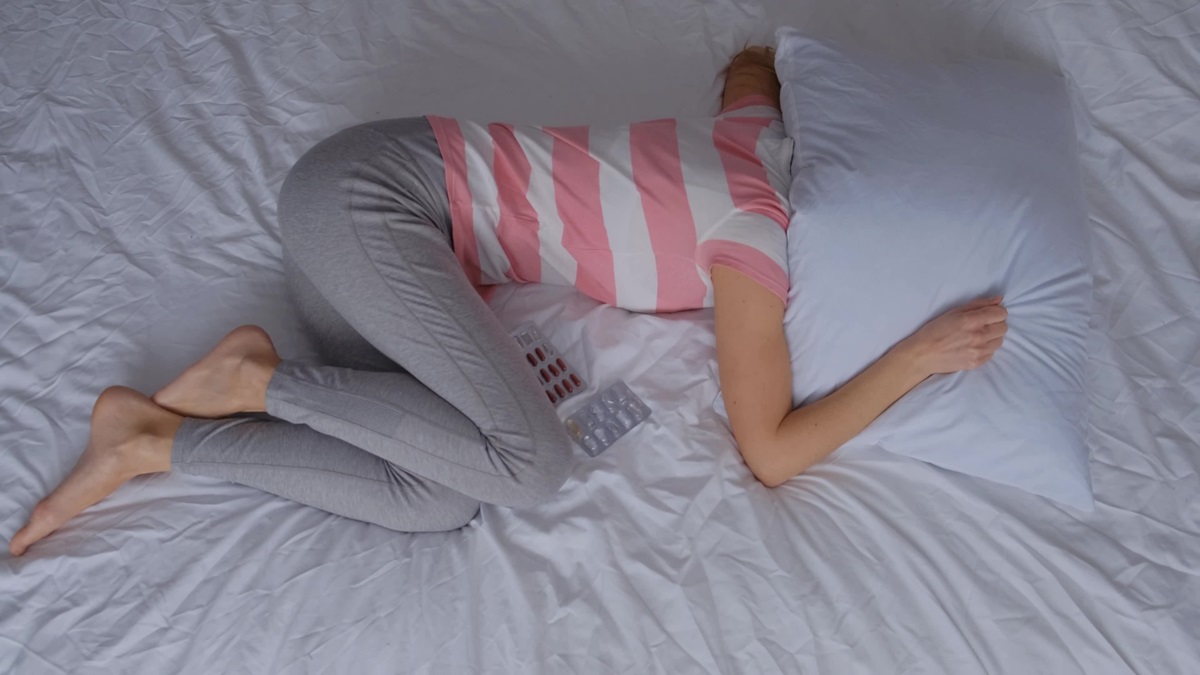What do you think of this article?
By Dr. David Woo - July 10, 2023

For many people, summer comes with the promise of vacations, travel, family reunions, or relaxation. However, not everyone experiences these emotions when the season comes around. In fact, taking care of our mental health in the summer is just as important as any other time of year.
What Is Seasonal Affective Disorder Or Seasonal Depression?
Although more commonly associated with the winter months, seasonal affective disorder (SAD) can also affect our mental health in the summer. SAD is classified as a type of depression, sometimes called seasonal depression or the holiday blues, and it affects around 5% of the US population in any given year (1). Seasonal depression is real, and so is summer seasonal depression, with the National Institute of Mental Health noting specific symptoms for summer-pattern seasonal affective disorder, which people experience in spring or early summer (2).
What Are The Symptoms Of Seasonal Affective Disorder?
SAD symptoms will regularly manifest during certain times of the year for around three to four months. As well as typical symptoms of depression, there are specific symptoms associated with summer-pattern SAD, which include:
- Insomnia (trouble sleeping)
- Loss of appetite, possibly leading to weight loss
- Feeling restless and agitated
- Increased irritability and even episodes of violent thoughts or behavior
- Co-occurring symptoms of anxiety with depression, called anxious depression
Travel And Post-Vacation Depression
In addition to SAD, people might experience post-vacation depression during the summer, especially if they were already in a high-stress work environment (3). In this case, it could be helpful to ‘buffer’ the return to work or studies with an extra day or to ease into the transition.
Anxiety In The Summer Season
It’s not only depression that can affect our mood in the summertime. People with anxiety can also experience more severe symptoms during the summer due to the warm temperatures increasing their heart rate or the production of stress hormones, as well as pressure related to planning the perfect vacation or exposing one’s body.
Women and mental health is a critical topic that deserves attention, as research shows that women are more susceptible to certain mental health conditions, such as depression, compared to men. Women often face unique challenges related to hormonal changes, gender roles, and societal expectations that can impact their mental well-being. Additionally, women’s mental health issues can manifest differently, and they may encounter barriers or discrimination when seeking treatment. At Madison Avenue TMS & Psychiatry, we are committed to providing compassionate care and effective treatment options tailored to the specific needs of women, including talk therapy, medication management services, and transcranial magnetic stimulation (TMS). Let´s break down the state of women’s mental health issues today, and how innovative treatments can help patients overcome traditional barriers to wellness.
Jump to:
- Are Women More Susceptible To Certain Mental Health Conditions?
- Do Women Manifest Different Mental Health Symptoms?
- Gender Differences In Symptoms Of Mood Disorders
- Barriers Women Face In Mental Health Treatment
- Treatment Options For Women’s Mental Health Issues
- Get Compassionate Mental Health Care At Madison Avenue TMS & Psychiatry
Are Women More Susceptible To Certain Mental Health Conditions?
Studies indicate that women are more likely than men to experience certain mental health disorders. This discrepancy between the sexes is influenced by a combination of biological, psychological, and social factors. Key statistics include:
- Depression: Women are nearly twice as likely to be diagnosed with depression compared to men (1, 2). Hormonal fluctuations during puberty, menstruation, pregnancy, postpartum, and menopause can contribute to this increased risk.
- Anxiety Disorders: Women are more likely to experience anxiety disorders, including generalized anxiety disorder (GAD), panic disorder, and phobias (4).
- Post-Traumatic Stress Disorder (PTSD): Women are more than twice as likely as men to develop PTSD after experiencing traumatic events. Women are also more likely to experience certain types of trauma, such as sexual violence, which further increases the risk of PTSD (5).
- Obsessive-Compulsive Disorder (OCD): OCD affects both men and women, but women tend to have a later onset and are more likely to develop OCD related to contamination fears and compulsive cleaning (6, 7).
- Attention-Deficit/Hyperactivity Disorder (ADHD): ADHD is often underdiagnosed in women, who may present with inattentive symptoms rather than hyperactivity. As a result, many women remain undiagnosed until adulthood (8).
- Bipolar Disorder: Women are more likely to experience rapid cycling (more frequent mood changes) and mixed states of bipolar disorder compared to men, making it essential to identify gender-specific symptoms and treatment plans (9).
- Borderline Personality Disorder (BPD): Approximately 75% of those diagnosed with BPD are women, with symptoms often linked to trauma, emotional instability, and interpersonal difficulties (10).
Do Women Manifest Different Mental Health Symptoms?
Women’s mental health issues often manifest differently compared to men, which can impact diagnosis and treatment. Mental health is not one-size-fits-all, and symptoms can present across the entire gender spectrum. However, women as a demographic display some differences in symptoms in certain conditions, such as:
- Depression: Women with depression may experience more physical symptoms such as fatigue, changes in appetite, and sleep disturbances, while men may report more irritability and anger.
- Anxiety: Anxiety in women often manifests as internalizing symptoms like excessive worry, phobias, rumination, and physical complaints (e.g., headaches, fatigue), whereas men tend to present externally, with a higher prevalence of irritability and risky behaviors.
- PTSD: Women are more likely to experience symptoms such as hypervigilance, avoidance, and emotional numbing, while men may exhibit higher levels of aggression.
- ADHD: Women with ADHD often show inattentiveness, forgetfulness, and disorganization, which can be mistaken for anxiety or depression.
- Bipolar Disorder: Women with bipolar disorder tend to have more depressive episodes and fewer manic episodes than men, which can affect how the disorder is perceived and treated.
- OCD: Women are more likely to develop OCD symptoms related to caretaking, contamination, and morality.
Hormonal changes in women, including pregnancy and the menstrual cycle, may also account for variations in symptoms. Pregnant women, new mothers, and pre- and post-menopausal women all experience changes in their body chemistry that can affect their vulnerability to certain mental health disorders as well as the presentation and severity of symptoms. It´s important to note that hormonal factors should not be an excuse for anyone to dismiss or minimize mental health symptoms—our mental health is intimately linked to our biochemistry, and hormones are a natural part of that.

Gender Differences In Symptoms Of Mood Disorders
This table presents an overview of gender-based differences in symptom manifestation in common mental health conditions:
| Mental Health Disorder | Men | Women |
| Depression | More likely to present irritability, anger, substance abuse, risk-taking behavior, and physical pain (e.g., back pain, headaches). | More likely to experience sadness, excessive crying, fatigue, sleep disturbances, and rumination. |
| Anxiety | Externalizing symptoms like irritability, anger, restlessness; may self-medicate with alcohol or drugs. | Internalizing symptoms such as excessive worry, fear, avoidance, and physical symptoms (e.g., headaches, muscle tension). |
| Bipolar Disorder | More prone to manic episodes characterized by irritability, aggression, and impulsive behavior; higher risk of substance abuse. | More prone to depressive episodes; rapid cycling is more common, along with mixed states of mania and depression. |
| Borderline Personality Disorder (BPD) | Often underdiagnosed; may show aggression, substance abuse, or reckless behavior; stigma around “masculine” emotional expression. | More likely to exhibit mood swings, intense emotional reactions, fear of abandonment, and self-harm behaviors. |
| Obsessive-Compulsive Disorder (OCD) | More likely to have obsessions related to symmetry, checking, and contamination; less likely to seek treatment. | More likely to have obsessions related to cleanliness, contamination, and compulsive cleaning; higher rates of comorbid anxiety. |
| Attention-Deficit/Hyperactivity Disorder (ADHD) | Often presents with externalizing behaviors like impulsivity, hyperactivity, and risk-taking; more diagnosed in childhood. | Often presents with inattentiveness, forgetfulness, and disorganization; underdiagnosed and often identified in adulthood. |
| Post-Traumatic Stress Disorder (PTSD) | More likely to experience irritability, anger, emotional numbing, and substance abuse; symptoms linked to combat or accidents. | More likely to experience hypervigilance, flashbacks, avoidance, and emotional distress; symptoms often linked to sexual trauma or abuse. |
Barriers Women Face In Mental Health Treatment
Despite the higher prevalence of mental health disorders among women, many face significant barriers to accessing effective care due to the negative impacts of sexism and societal expectations of women (11).
- Misdiagnosis: Women are often misdiagnosed or have their symptoms attributed to hormonal changes or emotional overreaction, leading to delayed or inadequate treatment.
- Financial and time constraints: Caregiving responsibilities and lower income levels can prevent women from seeking timely mental health care.
- Gender discrimination: Some women report experiencing discrimination in the healthcare system, where their concerns are not taken seriously or dismissed, impacting their willingness to seek treatment.
Treatment Options For Women’s Mental Health Issues
At Madison Avenue TMS & Psychiatry, we offer a range of treatment options designed to address women’s mental health issues. These include:
- Medication management: Personalized treatment plans to manage conditions such as depression, anxiety, ADHD, and bipolar disorder
- Telehealth consultations: Convenient access to mental health care from the comfort of home, making it easier for women to prioritize their mental well-being.
- Transcranial magnetic stimulation (TMS): A non-invasive and effective treatment option for depression, OCD, and anxiety, particularly for those who have not responded to medication or therapy.
As a drug-free depression treatment, TMS is safe for women who want to avoid the potential pharmaceutical interactions and side effects that come with taking antidepressants. This means that TMS is an effective treatment to undergo for women who are pregnant, breastfeeding, or on hormonal medications for birth control, menopause, or other reasons.
Get Compassionate Mental Health Care At Madison Avenue TMS & Psychiatry
Women face unique challenges when it comes to mental health, but effective treatments are available.
At Madison Avenue TMS & Psychiatry, we provide compassionate care tailored to the specific needs of women in a supportive environment. Our clinic stands for gender equality and mental health equity, and we encourage women with mental health concerns to contact us for a consultation without fear of discrimination or judgment.
If you or a loved one is struggling with mental health issues and based in the New York area, contact us today via our website or by calling (212) 731-2033. Our team of professionals is here to help you regain control of your mental well-being and lead a healthier, more fulfilling life.
More Resources On Women And Mental Health:
- Understanding Menopause Mood Swings
- BPD In Women: Know The Signs
- Bipolar Disorder In Women: Prevalence, Symptoms, And Treatment
Sources
- Hyde, Janet S. PhD; Mezulis, Amy H. PhD. Gender Differences in Depression: Biological, Affective, Cognitive, and Sociocultural Factors. Harvard Review of Psychiatry 28(1):p 4-13, 1/2 2020. Link. Accessed September 16, 2024.
- Albert, P. R. Why is depression more prevalent in women? Journal of Psychiatry & Neuroscience.. 2015;40(4), 219-221. Link. Accessed September 16, 2024.
- Farhane-Medina, N. Z., Luque, B., Tabernero, C., & Castillo-Mayén, R. Factors associated with gender and sex differences in anxiety prevalence and comorbidity: A systematic review. Science Progress. 2022. Link. Accessed September 16, 2024.
- Javaid, S.F., Hashim, I.J., Hashim, M.J. et al. Epidemiology of anxiety disorders: global burden and sociodemographic associations. Middle East Curr Psychiatry 2023;30, 44. Link. Accessed September 16, 2024.
- Hiscox, L.V., Sharp, T., Olff, M. et al. Sex-Based Contributors to and Consequences of Post-traumatic Stress Disorder. Curr Psychiatry Rep 25. 2023; 233–245. Link. Accessed September 16, 2024.
- Tiyatiye, B., & Akosile, W. (2022). A systematic review of prevalence of comorbid obsessive-compulsive disorders and substance use disorders in clinical settings, 1990-2021. Journal of Substance Use. 2022;29(2), 180–185. Link. Accessed September 16, 2024.
- Dr. Noreena Kausar, Amna Ishaq, & Dr. Muneeb Ahmed Toor. (2023). Prevalence of Obsessive-Compulsive Disorder in Psychiatric Patients. PAKISTAN JOURNAL OF LAW, ANALYSIS AND WISDOM, 2023;2(02), 1032–1041. Link. Accessed September 16, 2024.
- Hinshaw SP, Nguyen PT, O’Grady SM, Rosenthal EA. Annual Research Review: Attention-deficit/hyperactivity disorder in girls and women: underrepresentation, longitudinal processes, and key directions. J Child Psychol Psychiatry. 2022;Apr;63(4):484-496. Link. Accessed September 16, 2024.
- Miola, A., Fountoulakis, K. N., Baldessarini, R. J., Veldic, M., Solmi, M., Rasgon, N., Ozerdem, A., Perugi, G., Frye, M. A., & Preti, A. (2023). Prevalence and outcomes of rapid cycling bipolar disorder: Mixed method systematic meta-review. Journal of Psychiatric Research. 2023;164, 404-415. Link. Accessed September 16, 2024.
- Bozzatello, P., Blua, C., Brandellero, D., Baldassarri, L., Brasso, C., Rocca, P., & Bellino, S. Gender differences in borderline personality disorder: A narrative review. Frontiers in Psychiatry. 2024;15, 1320546. Link. Accessed September 16, 2024.
Garb, H. N. Race bias and gender bias in the diagnosis of psychological disorders. Clinical Psychology Review. 2021;90, 102087. Link. Accessed September 16, 2024.
Tips For Coping With SAD In The Summer
There are many reasons we might feel depressed, anxious, or irritated during the summer. Schedule changes may disrupt our routine, financial worries might surface related to vacation spending or planning, or we may compare ourselves unfavorably to others, whether they appear to be going on more glamorous vacations or having the perfect “beach body.” It’s important to recognize our summertime triggers and take steps to minimize our exposure to them or mentally prepare ourselves to face them.
Some techniques for overcoming typical triggers for SAD include:
- Avoid spending too much time on electronic devices before bed, as these can disrupt the production of melatonin (a.k.a., the sleep hormone) and reduce sleep quality (4)
- Plan and stick to a routine
- Make space, even as little as ten minutes per day, for quiet time and or enjoyable self-care activities that boost your mood
- Take an extended break from social media, or limit yourself to thirty minutes per day, especially if it triggers body image issues
- Practice positive body image self-talk
- Stay in the shade or use an air conditioner if the heat makes you irritable or disrupts sleep
Sometimes simple self-care can help overcome the summertime blues, but if symptoms persist, it is recommended to seek medical treatment.
Treatment For Seasonal Depression And Anxiety
Whether you are experiencing depression in the winter or summer months, it is vital to seek help, as effective treatments are available to help you find relief from your symptoms. Like standard depression, SAD is usually treated with talk therapy or antidepressant medications. When antidepressants don’t seem to help, transcranial magnetic stimulation (TMS) is an FDA-approved depression treatment that has also been shown to help relieve the symptoms of SAD.
If you have trouble shaking the summertime sadness or struggle with a low mood at any time of the year, TMS may help you find relief. It’s crucial never to be ashamed of our depression symptoms but to reach out to our support networks and seek professional help as soon as possible. Madison Avenue TMS & Psychiatry provides talk therapy and TMS for treating depression, anxiety, and other conditions. Contact us online or call (212) 731-2033 to make an appointment for consultation or treatment.
Sources:
- Cotterell, D. Pathogenesis and management of seasonal affective disorder. Progress in Neurology and Psychiatry. 2010;14(5), 18-25. Link. Accessed June 15, 2023.
- Seasonal Affective Disorder. National Institute Of Mental Health. Seasonal Affective Disorder. Publication Date Unknown. Link. Accessed June 15, 2023.
- Bretones, F. D. Facing the post-holiday blues. Safety Management. 2017. Link. Accessed June 15, 2023.
- Perrault, A, and others. Reducing the use of screen electronic devices in the evening is associated with improved sleep and daytime vigilance in adolescents. Sleep. 2019;42, 9. Link. Accessed June 15, 2023.
Dr. Woo has been seeing patients in private practice since 2002, always with the goals of combining evidence-based medicine with psychodynamic psychotherapy and collaborating with other mental health professionals to ensure the best possible outcomes for his patients. He has been certified to administer TMS at his practice since 2017. His greatest clinical interests include helping patients suffering from depression, anxiety, and obsessive compulsive disorder.



